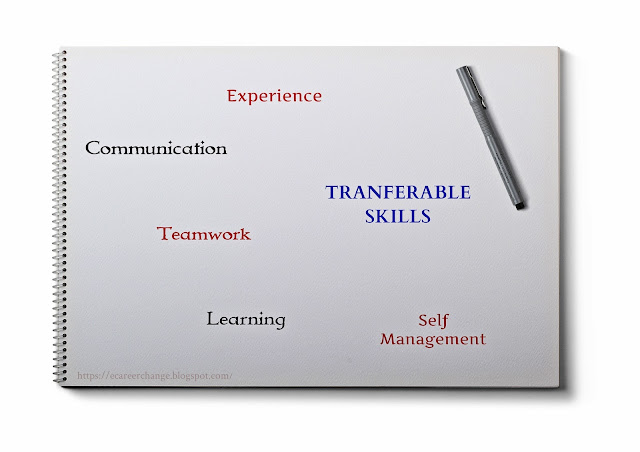Answers
Career change
Questions
Questions and Answers
Self Assessment
transition
10 Self Assessment Questions When Planning for a Career Change
Are you tired of being in your current industry and working tirelessly to complete those daily targets? It could be because your passion lies somewhere else. Maybe you are inclined for an offbeat career such as a travel blogger. When you are not enjoying, it's an indication that you have selected a wrong career. If the thought of career change is hovering in your mind, and you are unable to take the decision, the best way to declutter those 'Can I, Can I not' thoughts and determine the perfect time is do self-assessment. It's never too late to begin once you have realized that the time to pay attention to the goals hidden somewhere in the corner of heart has come. Ask yourself these questions to do a self-analysis before jumping the ship.
Taking a decision for career change in the mid-life is not easy. However, that shouldn't deter you in experimenting and following your dreams. As George Lucas puts it, 'Dreams are extremely important. You cannot do it unless you imagine it.' In the same way, distancing yourself from a job to follow a career you have always desired is necessary if you don't want regrets in life.
 |
| Self Assessment |
#01. What is not working for you in current career?
A person gets into an industry due to various reasons - peer/family pressure, convenience, package or prestige, but realizes very late that he or she is not meant for that job. While managers are taking steps to establish cordial relations with employees and develop a positive work environment, an individual who has a career change in mind might not be affected by a pay rise or a double promotion. If you have exhausted all the possibilities and yet find it difficult to concentrate on the present job, then it might be time to go for a change.#02. Can I fix what is wrong in my current job?
Wait, before taking the plunge. Sometimes it's wiser to understand where the actual problem lies. Does the dissatisfaction exist because you have a difficult boss or there is a feeling of boredom? You might try changing the company or moving your desk to a different department before making a hasty decision. Assess every possibility before stepping into the unknown.#03. Am I willing to take the risk and explore a new career?
Changing career mid-life could be a big decision as it means starting fresh or from ground zero. Are you willing to risk your current name and fame to venture into a new direction just because that has been your passion since childhood? If the desire to follow a dream that you have cherished since childhood is still alive, it would be the best decision you will ever make. However, if you still doubt about how far you can go in a new career, take more time to remove those negative thoughts to make a firm decision.#04. Do I have the required skills?
To be successful in any career, you need to first have the skills or expertise in the domain. When you finally decide to change career, understand whether you possess the required traits. While transferable skills can always be a bonus point, knowing what are the prerequisites to be successful in your new career can go a long way in assisting for change. For instance, you always hankered to develop a mobile application that makes placing courier requests easier, but have been stuck up with an accountant job. This would be difficult if you have no idea how to write a single line of code.#05. Am I willing to go back to school or a course to start afresh?
When the decision to shift gears to a new career is final, you must do everything it takes to make it happen. Learn those skills right from basics and just throw yourself into it. This means you must be fine attending evening classes even if it involves taking diction from experts sitting in a classroom or following online seminars from professionals already in your intended field to get ideas of kick-starting your new career.#06. Are you being practical and realistic?
Career change is no cakewalk and just following the footsteps of a friend who has reached the apex after changing his field is definitely not a great idea. It's a huge decision and therefore, necessary to understand the pros-cons of the sector you are planning to enter. Try to collect information on what a normal workday would be like, competition, and future prospects in the new field.#07. Is there a professional development plan in place?
When you are finally going ahead with a career change, it's very important to chalk out an entire outline on how the new career would shape up. Take efforts to create an overall perspective or small milestones that you would like to achieve in a new role. It will give the needed motivation when feeling low.#08. Do I have sufficient valuable business contacts?
An individual beginning a new phase of life necessarily may not have all the required connections or complete knowledge of the field. Instead of complaining about limited connections, get in touch with people already working in the field to learn from their experience and increase your chances of being successful. Add up more LinkedIn connections or try to get an appointment to discuss your doubts with the concerned people.#09. Is this career move in sync with my long-term goals?
With the world rapidly becoming tech savvy and individuals posting every small act on social media, the fear of being judged is so high. Realizing your dream late and taking efforts to move in that direction is a big thing and you should accept the fact that good things that add value to your life would take time. If the new career is your life's ultimate goal, then just go for it without giving it a second thought.#10. Do I have enough savings to cover me?
Before sending that resignation letter, check if you are self-sufficient for a new start and have saved enough to manage in low paycheck. Side-options exist and support may come in different forms, but it's always good to ensure that you will not be a broke and manage to stay afloat till the time you manage to hit a high.Taking a decision for career change in the mid-life is not easy. However, that shouldn't deter you in experimenting and following your dreams. As George Lucas puts it, 'Dreams are extremely important. You cannot do it unless you imagine it.' In the same way, distancing yourself from a job to follow a career you have always desired is necessary if you don't want regrets in life.



































